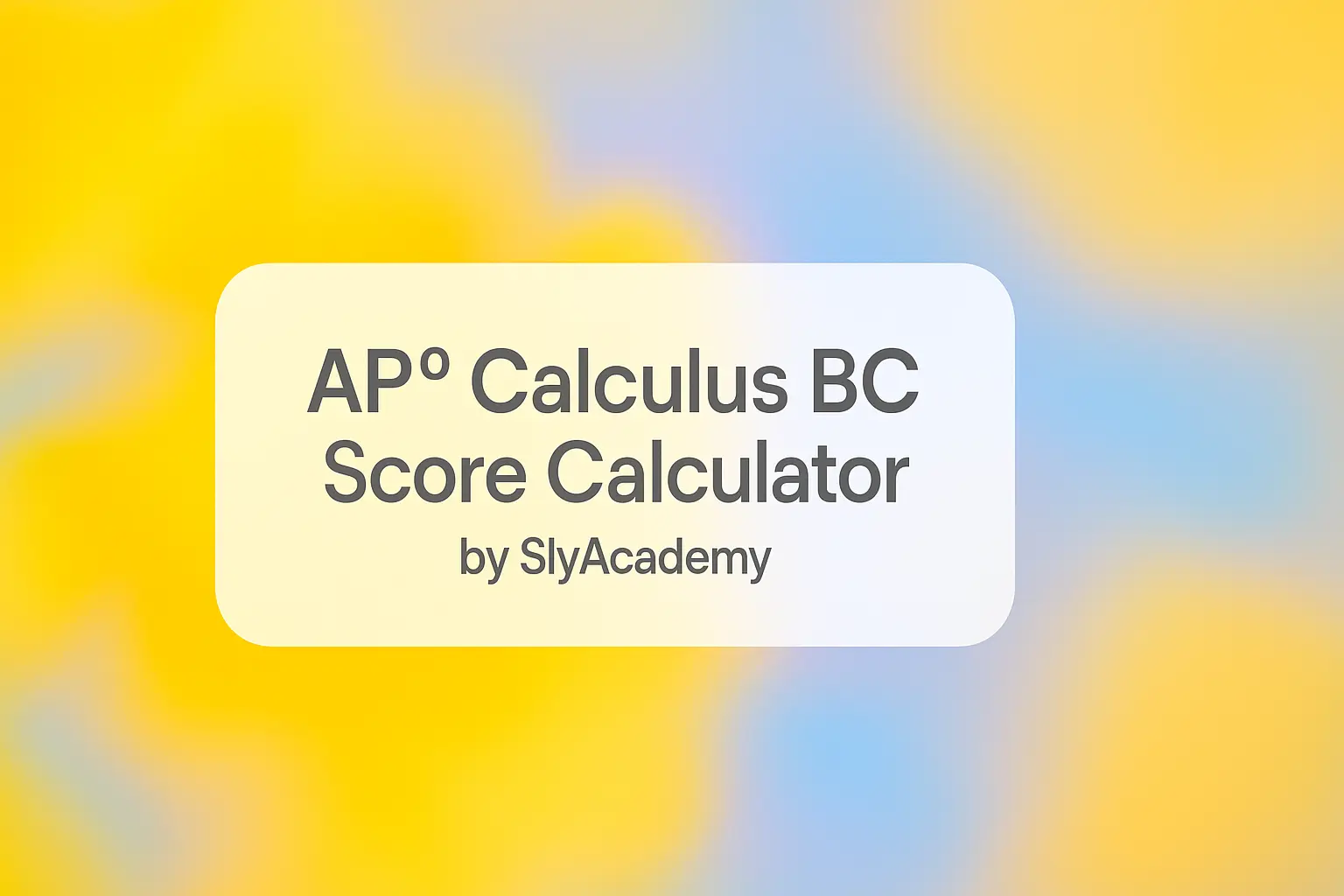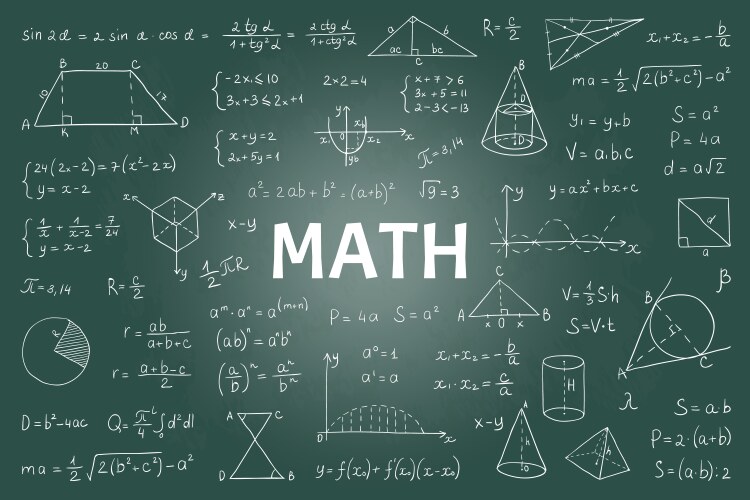AP® Calculus BC Score Calculator

Score Calculator
AP® Calculus BC Score Calculator
Adjust the sliders below to calculate your potential AP® score
AP® Calculus BC Score Calculator (2025)
📌 Introduction
The AP® Calculus BC Score Calculator is a powerful tool designed to help you predict your final AP score (1–5) based on your raw performance on the multiple choice (MCQ) and free response (FRQ) sections of the exam.
Whether you’re reviewing a practice test, doing mock exam prep, or just curious how close you are to a 5, this calculator uses College Board scoring patterns and historical curves to generate accurate predictions in seconds.
➗ What Is the AP® Calculus BC Exam?
AP Calculus BC is a college-level course that covers all topics in AP Calculus AB, plus additional content like:
Parametric, polar, and vector functions
Series and convergence
Taylor and Maclaurin series
Advanced applications of integrals
Differential equations and slope fields
It’s one of the most comprehensive and rigorous AP exams, but also one with a relatively high percentage of students scoring a 5 due to strong math backgrounds.
📝 2025 AP Calculus BC Exam Format
| Section | Type | Questions | Time | Weight |
|---|---|---|---|---|
| I-A | MCQ – No Calculator | 30 questions | 60 minutes | 33.3% |
| I-B | MCQ – With Calculator | 15 questions | 45 minutes | 16.7% |
| II-A | FRQ – With Calculator | 2 questions | 30 minutes | 16.7% |
| II-B | FRQ – No Calculator | 4 questions | 60 minutes | 33.3% |
🧮 How the AP® Calculus BC Score Calculator Works
The calculator estimates your composite score (out of 108) by weighing both MCQ and FRQ raw scores, then converts this to a projected AP score (1–5) using approximate cutoffs based on historical data.
📊 Scoring Breakdown
| Section Type | Max Raw Score | Weight (%) |
|---|---|---|
| Multiple Choice | 45 questions | 50% |
| Free Response | 6 questions | 50% |
Each FRQ is scored out of 9 points. Total MCQ + FRQ raw score = max 108.
🎯 Composite Score to AP Score Mapping (Estimated)
| Composite Score | Predicted AP Score |
|---|---|
| 92–108 | 5 |
| 75–91 | 4 |
| 60–74 | 3 |
| 45–59 | 2 |
| Below 45 | 1 |
📌 Note: Score thresholds vary slightly from year to year depending on exam difficulty.
🛠️ How to Use the AP® Calculus BC Score Calculator
Input Your MCQ Score
Count the number of correct answers (out of 45 questions).
Input Your FRQ Score
Each FRQ is scored out of 9. Add up your total (max = 54).
Instant Results
The calculator computes your composite score and converts it to a predicted AP score (1–5).
🧠 FRQ Scoring Tips
Show all your work. Calculators are allowed on select questions but don’t rely solely on them.
Use clear, logical steps and correct mathematical notation.
Points are often awarded for correct methods, even if the final answer is wrong.
Check units, limits, and signs on integrals and derivatives.
In series questions, always justify convergence and state the interval of convergence.
✅ Why Use This Calculator?
📊 Gauge your readiness before test day
⏱️ Practice smarter by simulating scoring patterns
🧠 Analyze section-wise performance (MCQ vs FRQ)
🎯 Set clear score targets and measure progress
💪 Boost your confidence with realistic expectations
📚 Best Study Resources for AP Calculus BC
🧾 Final Thoughts
The AP® Calculus BC Score Calculator is your ultimate tool for accurate score prediction. Whether you’re taking a timed practice test or grading yourself on daily FRQs, this calculator helps you understand where you stand, and what you need to improve to get that perfect 5.
Make it part of your prep routine and take the guesswork out of your AP Calculus strategy.
Recent Posts
- Geometry Regents Score Calculator (2025 NY Exam Tool)
- Algebra 2 Regents Score Calculator (2025 NY Exam Tool)
- Algebra 1 Regents Score Calculator (NY Regents Estimator)
- PreACT® Score Calculator (2025 Raw-to-Scaled Estimator)
- ACT® Score Calculator (2025 Raw-to-Scaled Score Tool)
- PSAT® Score Calculator (2025 Digital Exam Estimator Tool)
- AP® Music Theory Score Calculator (2025 Exam Estimator)
- AP® Art History Score Calculator (2025 Exam Estimator)
- AP® Spanish Literature Score Calculator (2025 Exam Tool)
- AP® Spanish Language Score Calculator (2025 Exam Tool)
- AP® Latin Score Calculator (2025 Exam Scoring Tool)
- AP® German Language Score Calculator (2025 Exam Tool)
- AP® French Language Score Calculator (2025 Exam Tool)
- AP® English Literature Score Calculator (2025 Exam Tool)
- AP® English Language Score Calculator (2025 Exam Tool)
Choose Topic
- ACT (17)
- AP (20)
- AP Art and Design (5)
- AP Chemistry (1)
- AP Physics 1 (1)
- AP Psychology (2025) (1)
- AP Score Calculators (35)
- AQA (5)
- Artificial intelligence (AI) (2)
- Banking and Finance (6)
- Biology (13)
- Business Ideas (68)
- Calculator (73)
- ChatGPT (1)
- Chemistry (3)
- Colleges Rankings (48)
- Computer Science (4)
- Conversion Tools (137)
- Cosmetic Procedures (50)
- Cryptocurrency (49)
- Digital SAT (3)
- Disease (393)
- Edexcel (4)
- English (1)
- Environmental Science (2)
- Etiology (7)
- Exam Updates (7)
- Finance (129)
- Fitness & Wellness (164)
- Free Learning Resources (208)
- GCSE (1)
- General Guides (40)
- Health (107)
- History and Social Sciences (152)
- IB (9)
- IGCSE (1)
- Image Converters (3)
- IMF (10)
- Math (44)
- Mental Health (58)
- News (9)
- OCR (1)
- Past Papers (450)
- Physics (5)
- Research Study (6)
- SAT (39)
- Schools (3)
- Sciences (1)
- Short Notes (5)
- Study Guides (28)
- Syllabus (19)
- Tools (1)
- Tutoring (1)
- What is? (312)
Recent Comments

ACT to SAT Conversion: What’s Your Score Really Worth?

Math AA exercise - Everything you need to know





